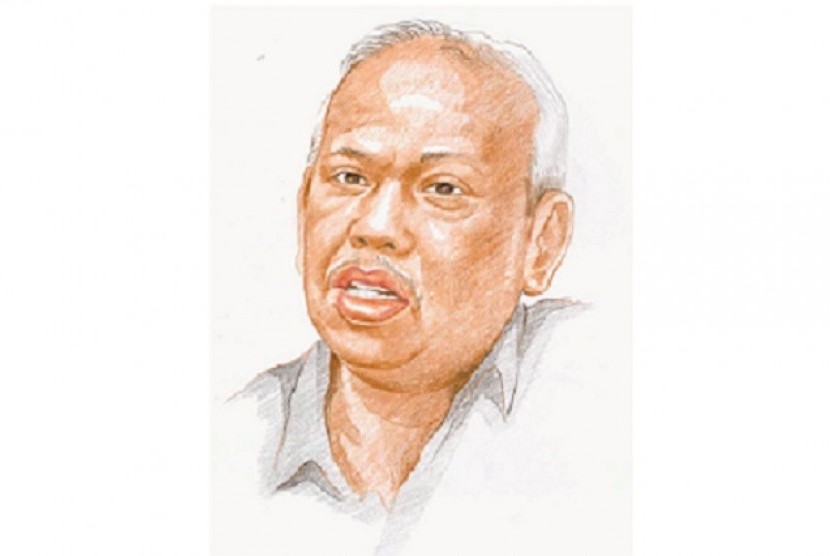REPUBLIKA.CO.ID, by Azyumardi Azra*
It was obviously difficult to understand and prevent the influx of transnational Islamic movements in Indonesia, particularly, in the present marked by instantaneous transmission of information through cyberspace. Due to advances in technology, the spread of transnational movements that are not always compatible with Indonesian Islam wasatiyah (moderation) and Islam rahmatan lil 'Alamin which is cannot be repressed.
Moreover, historically, since the early days of the arrival and spread of Islam, as seen in the author's own study on 'Network of Scholars', Indonesian maritime continent always associated and involved in cosmopolitanization and globalization of Islam, including Islamic transnational understanding and praxis.
Observing the history and dynamics of Indonesian Islam on that context, are emerging criticism from some reviewers Indonesia's Islam, such as the AH Johns (1976, 1981) and Mona Abaza (1994). They argued, Indonesia's Islam tend to be the recipients only from the understanding and transnational Islamic movements. In fact, the late Nurcholish Madjid had stated, Indonesia's Islam is still a 'consumer' of the thought and transnational Islamic movements outside rather than being a 'producer' which is able to 'export' of the thought and Indonesia Islamic movement to foreign country.
The statement was in specific terms could be debatable. However, an important point that should be mentioned here is Indonesia's Islam with Islam’s heritage (Islamic legacy) which are so rich in mass organizations-including especially wasatiyah-- was time to accelerate 'reverse flow' thinking and Indonesia Islamic movement to foreign country. This reverse flow is not just for the expansion of Indonesia's Islam, but also to provide an important contribution to the universal civilization and humanity which is more secure, harmonious and tolerant.
The need for acceleration of internationalization and transnationalization emerged since the beginning of the new millennium marked a kind events at international level on September 11, 2001 in the United States, the bombings in Madrid (March 11, 2004), London (July 7, 2005). Events involving Muslim individuals and groups that besides increasing the tension between what is commonly referred to as 'Islam versus the West', also reinforce the image of Islam and Muslims as 'radical'.
Although this generalization has been corrected, but the image of a radical persist with conflict and violence around the Arab Spring since the end of 2011 until now, the emergence of ISIS since 2014, and now the conflict in Yemen could slide into a regional war when Saudi Arabia formed the Arab Coalition attacking the Houthi rebels occupies various regions of Yemen.
In that context, the international community -- Muslim and non-Muslim-- misses Islam which are peaceful, friendly, accommodating, inclusive, and intra-Muslim coexistence containing various schools and non-Muslim interfaith. That is Indonesia's Islam wasatiyah , developed, maintained, and reinforced absolute majority Muslim of Indonesia, which in large amounts are also represented Islamic organizations.
That is Islam which could be rahmatan lil 'Alamin for his followers; also for other human beings who embrace different religions; for the natural environment with the other God's creatures; and for civilization and universal humanity.
Once again, mainstream of Islamic organizations Indonesia has great potential and long experience to accelerate its transnationalisasi. From the point of Islamic orthodoxy Indonesia (kalam Ash'arite, Shafi'i fiqh and Sufism of al-Ghazali), the Muslims of this country proves the viability and sustainability of the understanding of Islam that emphasizes moderation and tolerance among Muslims and non-Muslims. By doing so, Indonesian Muslim organizations could improve the existence and action in the wave of the changes, both at the state of Indonesia as well as in the life of the international community.
In addition, Indonesian Muslim organizations are very rich with institutions in various fields of life which are propaganda, education, health, social politely, economic, and environmental. At the same time, Islamic organizations increasingly rich with educated human resources that populate the various sectors of national life. They have also become the backbone for middle class Muslim.
With all the potential and heritage, Indonesian Muslim organizations that are in a strong position to accelerate the transnationalization. Therefore, mainstream of Indonesian Muslim organizations must be more assertive and expanding overseas network, both with groups and Islamic communities, as well as with communities and the wider government.
The transnationalization Islamic organizations are not enough just to reproduce a special branch, such as the Special Branch Chairman of Muhammadiyah (PCIM) or Special Branch Board-NU (PCI-NU). Special branch of the Islamic organizations there are, for example, in Cairo or Jeddah or Den Haag. However, its members are limited to the citizen or 'people of sumando' of couples who intermarry. PCIM or PCI-NU should experiencing 'indigenization', into local organizations.
If such strategy and measures could be done, InsyaAllah, Indonesian Muslim organizations could be a school and transnational Islamic movements --representing Indonesian wasatiyah Islam, which has always stressed the importance of realizing Islam rahmatan lil 'alamin in the universe.
Translated by Idealisa Masyrafina



